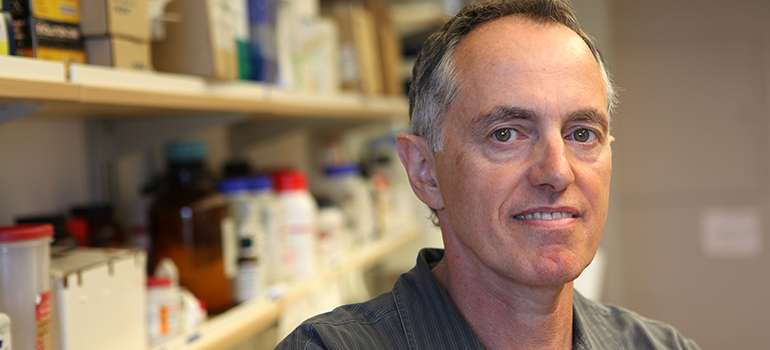The key to stopping sarcomas' spread

When sarcomas become large enough and outgrow their blood supply, they become vulnerable to hypoxia—a lack of oxygen. That adaptation not only enables them to survive the stress of low oxygen—it also enables them to withstand cancer drugs.
Poul Sorensen, a Professor in the Department of Pathology & Laboratory Medicine and Johal Chair in Childhood Cancer Research, has found a previously unrecognized pathway that allows those sarcomas to withstand the stress of hypoxia or cancer drugs.
His research, published May 11 in Cancer Cell, describes how a protein called YB-1, which is highly expressed across virtually all human sarcoma subtypes, can directly stimulate the production of another protein, HIF1a, which makes tumour cells stress-resistant and thus more invasive.
Sarcomas are tumours of the connective tissues, including bones and muscles. They are more common in children and can be extremely difficult to treat because they have a high tendency to metastasize, or spread. There has been little progress in treating the condition for the past two decades, in part because its metastatic mechanism has eluded scientists.
"This process appears to be specific for tumour cells, which could have profound implications for targeting the YB-1-HIF1α pathway therapeutically," says Dr. Sorensen, a Distinguished Scientist at the BC Cancer Agency, who conducted the research with Amal El-Naggar, a post-doctoral fellow.
By blocking the production of HIF1a through the YB-1 pathway, Dr. Sorensen and Dr. El-Naggar found that local tumors more susceptible to low oxygen conditions, dramatically inhibiting the spread of childhood sarcoma cells to the lungs. With this knowledge, researchers are now trying to find a drug that would target this pathway.
There may also be therapeutic applications for other cancers. The data suggests that this pathway is also active in adult epithelial cancers such as breast cancer.
There are 12 cases of sarcoma per year in B.C., and approximately 30-40 per cent of patients die of their disease, particularly in high-risk disease.



















